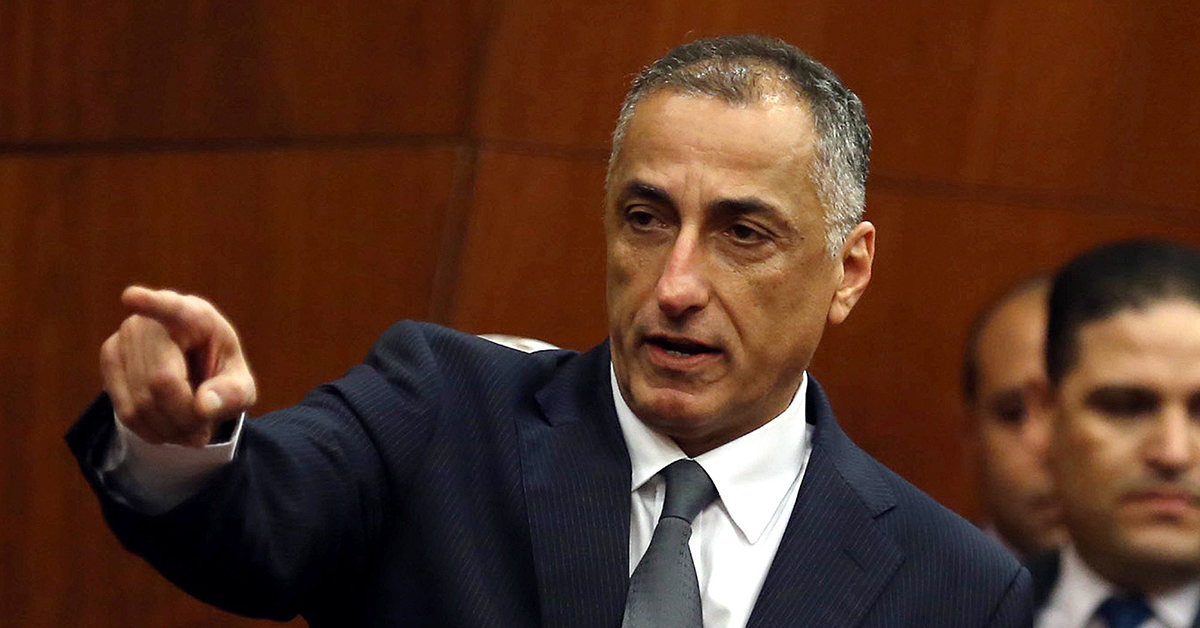One of the biggest challenges for TarekAmer’s successor will be balancing austerity and boosting citizens' purchasing power.

Governor Tarek Amer stepped down on August 17 after seven years at the head of the Egyptian central bank (CBE). He was appointed advisor to President al-Sisi. His successor at the central bank yet has to be named.
“Tarek Amer will retain influence on the decision making in Egypt and the new governor will not implement radical changes,” comments Ali Awdeh, head of research at the Union of Arab Banks. “The main strategy and policies of central bank will be similar to those adopted before.”
The reasons for his resignation are unclear. State media reported he was stepping aside to “allow others to complete the successful development process under the leadership of the president.”
Others industry experts point to a clash between Amer and the private sector regarding importation constrains recently imposed by the CBE as a mean to restore the trade balance.
After being one of the only countries to avoid recession during the pandemic, Egypt—the world’s largest wheat importer—is now struggling with the aftermath of the war in Ukraine. Soaring food and energy prices have brought inflation between 13% and 15%.
As Amer departs, the Egyptian pound is trading at its second-lowest rate on record.
In his last months as governor, Amer tried to contain the crisis with exchange rate and monetary measures. In May 2022, the CBE hiked the overnight interest rate by 200 bps. The bank’s Monetary Policy Committee raised the deposit rate to 11.25% from 9.25% and the lending rate to 12.25% from 10.25%, some of the highest in the world.
Back in March the CBE had already increased policy rates by 100 bps and allowed the exchange rate to depreciate 16%. At the same time, the government rolled out a fiscal stimulus package including public sector wage hikes and tax relief.
Cairo is also seeking assistance abroad. The authorities received substantial aid from neighboring countries, including $10.3 billion central bank emergency deposits from Saudi Arabia ($5 billion in March 2022, $3 billion in October 2021 and $2.3 billion previously) and considerable investment promises.
These measures, however, were not enough to stop international investors from pulling billions of dollars out. The central bank’s hard currency reserves fell to $33 billion in August from $41 billion in February.
Egypt requested a new bailout from the IMF as public debt hit 90% of GDP. Talks are ongoing. Negotiations include the fiscal consolidation and foreign exchange rates.
Another, perhaps more controversial, topic will be privatization of state assets and reform of Egypt’s huge military sector. In its 2021 Article IV assessment, the IMF noted that “the Egyptian government plays a large role in the economy through the presence of state-owned enterprises across almost all sectors—including (…) military-owned enterprises (…) with many registering weak financial performance.” The international organization suggests such firms should be privatized, shut down or reorganized, but that might be a deal breaker for President Sisi’s military regime.
“Financial institutions may challenge the privileges which Egypt’s military sector enjoys to the detriment of its private counterpart—a prospect which does not suit President Abdel Fattah Al-Sisi one bit, since his power rests entirely on his army officers,” journalist Jean Pierre Sereni commented in the Arab-focused online publication Orient XXI.
When he was named governor in 2015, Amer implemented new economic policies. He is famous for taking the difficult decision to float the Egyptian pound, which that helped restore economic stability and foreign investors’ confidence. This year’s economic headwinds are slowing down long-term reforms but the World Bank still expects the country to notch 6% growth for full-year 2022.
Egyptian banks remain robust and are some of the only ones in the MENA region to scale abroad, notably in Eastern Africa.
One of the biggest challenges for Amer’s successor will be the balance between austerity reforms and citizens’ purchasing power. In a country where 30% of the population lives under the poverty line, social unrest is a chronic risk.
Another priority will be to continue Egypt’s digital transition. Fintech is booming in the Nile Valley and so far, the CBE has been encouraging new technologies as a means to achieve financial inclusion. Although legal frameworks have to improved or in some cases simply implemented, Egypt remains one of Africa’s leading countries for digital finance.
Climate change and green finance will also be a top concern for the CBE’s new top man, as Egypt will be welcoming the COP27 meeting in November.



